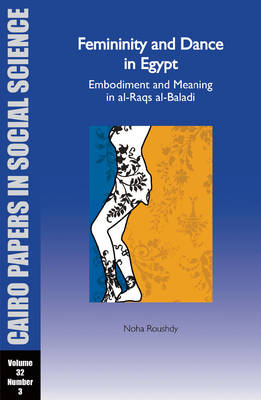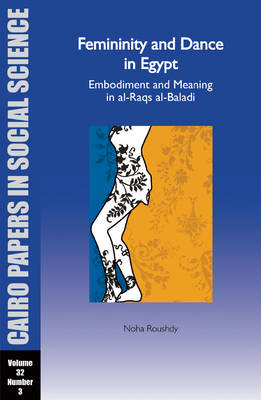
- Afhalen na 1 uur in een winkel met voorraad
- Gratis thuislevering in België vanaf € 30
- Ruim aanbod met 7 miljoen producten
- Afhalen na 1 uur in een winkel met voorraad
- Gratis thuislevering in België vanaf € 30
- Ruim aanbod met 7 miljoen producten
Zoeken
Femininity and Dance in Egypt: Embodiment and Meaning in Al-Raqs Al-Baladi
Cairo Papers Vol. 32, No. 3
Noha Roushdy
€ 48,45
+ 96 punten
Omschrijving
Considering the paradoxical position of al-raqs al-baladi or "belly dance" in Egyptian social life, as both a vibrant and a contested cultural form, this issue of Cairo Papers in Social Science considers the impact of wider socio-cultural and political forces on the marginalization of professional performers, on the one hand, and in defining the parameters for non-professional performances on the other hand. Through interviews with professional and non-professional female dancers in Egypt, it explores the relationship between al-raqs al-baladi and the dynamic cultural repertoire that produces notions of femininity and normative personhood in Egypt. As a dance that Egyptians learn in childhood, it exposes the cardinal relationship between culture and body movement. The study received the Magda al-Nowaihi Award for best graduate work on gender studies in 2010. Cairo Papers in Social Science 32/3
Specificaties
Betrokkenen
- Auteur(s):
- Uitgeverij:
Inhoud
- Aantal bladzijden:
- 118
- Taal:
- Engels
- Reeks:
- Reeksnummer:
- nr. 32
Eigenschappen
- Productcode (EAN):
- 9789774165931
- Verschijningsdatum:
- 25/04/2014
- Uitvoering:
- Paperback
- Formaat:
- Trade paperback (VS)
- Afmetingen:
- 140 mm x 213 mm
- Gewicht:
- 204 g

Alleen bij Standaard Boekhandel
+ 96 punten op je klantenkaart van Standaard Boekhandel
Beoordelingen
We publiceren alleen reviews die voldoen aan de voorwaarden voor reviews. Bekijk onze voorwaarden voor reviews.











